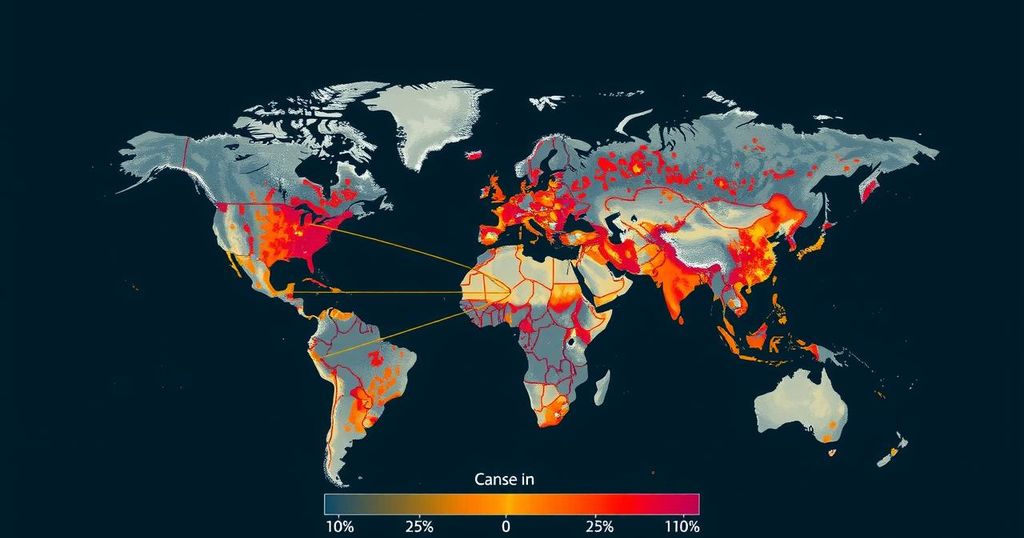Climate Change Linked to 20% Increase in Global Dengue Cases

A new study reveals that climate change accounts for nearly 20% of global dengue cases this year, highlighting the increased risk as temperatures rise. Researchers found that elevated temperatures are linked to a potential doubling of dengue cases in certain regions over the next 25 years. Concurrently, initiatives using Wolbachia-infected mosquitoes show promise in controlling the spread of this disease, which has seen record incidences worldwide.
Recent research indicates that climate change has been responsible for nearly 20% of the record dengue cases reported globally this year. This finding emphasizes how rising temperatures contribute to the spread of diseases. Researchers, led by Erin Mordecai, an infectious disease ecologist at Stanford University, focused on the climate sensitivity of dengue, a viral illness transmitted by infected mosquitoes, which has predominantly affected tropical regions but is expanding due to climate impacts. The study, examining dengue cases in 21 countries, revealed that approximately 19% of current dengue cases can be attributed to climate change, with the potential for significant increases in cases in previously cooler, elevated regions in South America over the next 25 years. This alarming trend highlights the urgent need to address climate change as a determinant of public health. Moreover, the ongoing global health crisis has seen over 12.7 million dengue cases documented as of September, with estimates suggesting the true figure may be close to 100 million due to significant underreporting. Concurrently, researchers are exploring innovative solutions such as the introduction of Wolbachia-infected mosquitoes, which can significantly reduce the transmission of dengue. Preliminary results from a five-year initiative in Brazil’s Niteroi indicate that communities that adopted Wolbachia mosquitoes experienced a notable decrease in dengue cases. This approach offers a promising strategy for combating increasing dengue outbreaks amid rising global temperatures.
The connection between climate change and health has become increasingly relevant as researchers strive to understand the implications of global warming on disease patterns. Dengue fever is highly sensitive to changes in climate, particularly temperature, which influences mosquito populations. The study presented sheds light on the direct correlation between rising temperatures and the rise in dengue cases, underscoring the importance of climate factors in disease epidemiology. This is a burgeoning area of research as public health increasingly faces the challenges posed by a warming climate and its effects on infectious diseases.
In conclusion, the startling rise in dengue cases attributable to climate change underscores an urgent public health concern. As temperatures continue to rise, the expansion of dengue’s geographic reach poses significant risks, particularly in vulnerable regions. The introduction of innovative methods such as Wolbachia-infected mosquitoes may provide critical tools for mitigating these risks, representing a proactive approach to tackling vector-borne diseases in a changing climate. Addressing the underlying causes of climate change remains paramount to protecting global health and preventing future outbreaks.
Original Source: www.voanews.com






